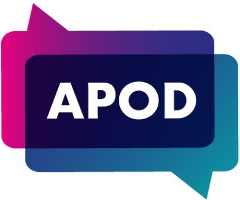The project’s impact objectives include:
- to aid in the interpretation of findings from the ongoing trial of OD in the NHS, speaking to their meaning and relevance for policy;
- to support service users and carers to share their OD experience and raise the profile of issues of concern in mental healthcare;
- to improve the specification and assessment of the OD model of mental healthcare for policy-makers internationally;
- to support NHS Trusts to learn from the experience of implementing OD and enable national and international mental health services to better identify and address institutional and social barriers to delivery of the model;
- to enable lessons from OD’s dialogical and social network model to improve service delivery in other (non-NHS) therapeutic contexts and in the community by voluntary sector organisations; and
- to engage a wider public debate on OD and the current crisis of mental healthcare and social connection.
The APOD team are currently finishing fieldwork (due to some Covid-related disruptions). Please see our publications and newsletter section for the most recent updates on the project.
An inner-London mental health NHS trust
- Population ~40,000
- 44% BAME, 33.6% white
- Top 20% most deprived in country
- High rates unemployment, overcrowding, domestic violence
- 3rd highest rate psychosis in London, high rates alcohol/substance use
- 200 different languages across whole of Haringey
A coastal west-country mental health NHS trust
- Population ~134,500
- 97 % white 3% BAME
- Top 20% most deprived in country
- high rates unemployment, self harm and alcohol- related admissions to hospital
- one of highest rates of depression in UK
- 97.8% of people speak English. The other top languages spoken are 0.7% Polish, 0.1% Tagalog/Filipino, 0.1% German, 0.1% All other Chinese, 0.1% French, 0.1% Spanish, 0.1% Malayalam, 0.1% Slovak, 0.1% Italian.

